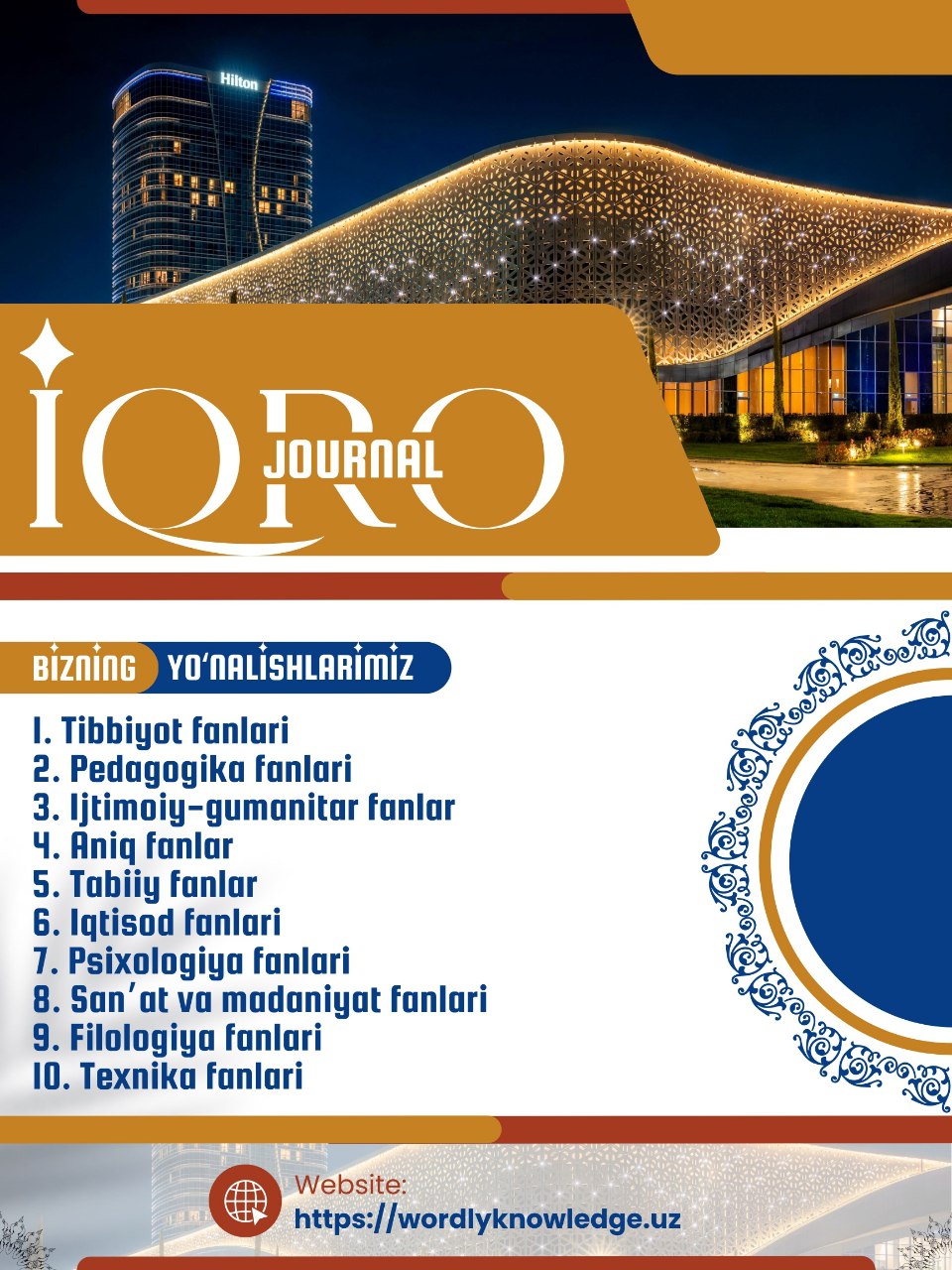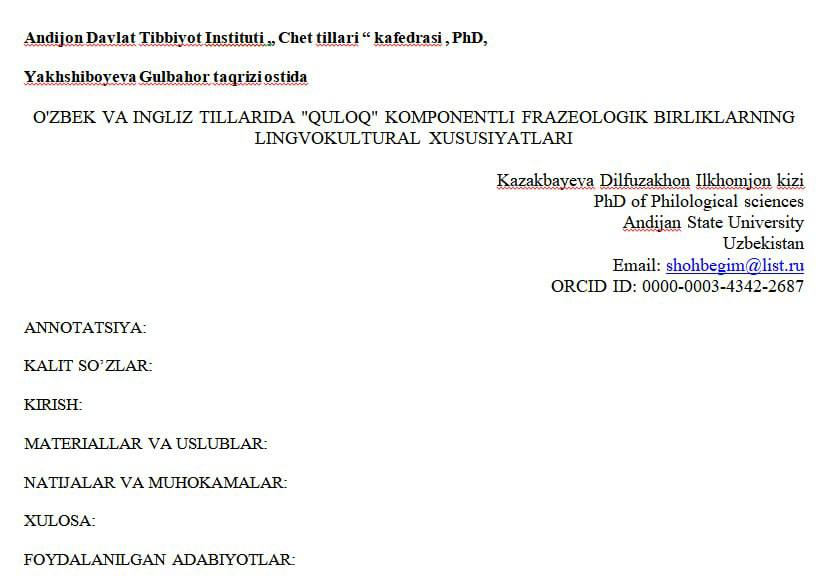ASSESSING STUDENTS’ LANGUAGE SKILLS: BEST PRACTICES AND STRATEGIES
Qo‘qon universiteti jahon tillari kafedrasi dotsenti, filologiya fanlari nomzodi O.Mamaziyayev taqrizi ostida
Keywords:
Language assessment, Student proficiency, Fomative assessment, Summative assessment, Performance-based evaluation, Peer and self-assessment,technology-enhanced assessment, Constructive feedback.Abstract
Assessing students' language proficiency is essential for academic success and personal growth. This article explores best practices for evaluating language skills across speaking, listening, reading, and writing. Effective assessments help teachers identify strengths, address weaknesses, and tailor instruction accordingly. A balanced approach combining formative, summative, performance-based, and self-assessments ensures comprehensive evaluation. Formative assessments, such as peer reviews and reflective journals, provide real-time feedback, while summative assessments measure overall competency. Performance-based tasks, including presentations and role-plays, enhance real-world application. Technology-driven assessments further improve efficiency. Constructive feedback is crucial for student improvement, fostering confidence and motivation. Feedback should be specific, actionable, and timely to encourage meaningful learning. Beyond grading, assessments should guide continuous language development and skill enhancement. When structured effectively, they become powerful tools for student empowerment, ensuring their preparedness for academic and professional success. Ultimately, language assessment should be an evolving process that supports lifelong learning.
References
1. Akhmedova, M. (2025). ENHANCING ENGLISH READING SKILLS: EVIDENCE-BASED STRATEGIES FOR LISTENING. " GLOBAL MUNOSABATLAR NAZARIYASI: YOSHLARNING TARAQQIYOT GʻOYALARI" xalqaro ilmiy-amaliy anjumani materiallari, 1(2), 201-205.
2. Akhmedova, M. (2025). SPECIFIC FEATURES OF TEACHING ACADEMIC ESSAY WRITING. " GLOBAL MUNOSABATLAR NAZARIYASI: YOSHLARNING TARAQQIYOT GʻOYALARI" xalqaro ilmiy-amaliy anjumani materiallari, 1(2), 197-200.
3. Celce-Murcia, M. (2010). Teaching pronunciation: A course book and reference guide. Cambridge University Press.
4. Karimova, O., & Sobirova, N. (2025). MUQIM FRAZEOLOGIK BIRLIKLAR TARJIMASINING O ‘ZIGA XOSLIKLARI. TAMADDUN NURI JURNALI, 1(64), 214-217.
5. Komilova, M. (2024). LANGUAGE AND SOCIAL INEQUALITY: A PRAGMATIC PERSPECTIVE. University Research Base, 809-813.
6. Mokhigul, T. (2025). THE ROLE OF TECHNOLOGY IN MODERN PEDAGOGY. " GLOBAL MUNOSABATLAR NAZARIYASI: YOSHLARNING TARAQQIYOT GʻOYALARI" xalqaro ilmiy-amaliy anjumani materiallari, 1(2), 113-117.
7. Mokhigul, T. (2025). THE ROLE OF MUSIC IN LANGUAGE LEARNING: AN ACADEMIC PERSPECTIVE. " GLOBAL MUNOSABATLAR NAZARIYASI: YOSHLARNING TARAQQIYOT GʻOYALARI" xalqaro ilmiy-amaliy anjumani materiallari, 1(2), 118-120.
8. Nation, P. (2013). Learning vocabulary in another language (2nd ed.). Cambridge University Press.
9. Sultanovna, U. S. ., & Dilnavoz, Y. . (2022). DANIEL DEFOE’S CREATION IN ENGLISH LITERATURE. IJTIMOIY FANLARDA INNOVATSIYA ONLAYN ILMIY JURNALI, 2(12), 9–11. Retrieved from https://www.sciencebox.uz/index.php/jis/article/view/4814
10. Stevick, E. W. (1980). Teaching languages: A way and ways. Newbury House.
11. Yokubjonova, D. (2024). ADMINISTERING NEEDS ANALYSIS IN CURRICULUM DEVELOPMENT. University Research Base, 934–937. Retrieved from https://scholar.kokanduni.uz/index.php/rb/article/view/757
12. Yokubjonova, D. (2024). TEACHING WRITING SKILLS FOR ELEMENTARY PUPILS AT SCHOOLS. University Research Base, 930-933.
13. Ziyodaxon Qodirova (2024). THE IMPACT OF CULTURAL FRAMEWORKS ON COMMUNICATION: HOW SOCIAL NORMS, BELIEFS, AND VALUES SHAPE INTERACTIONS ACROSS BORDERS. Talqin va tadqiqotlar ilmiy-uslubiy jurnali, 2 (56), 247-250.














